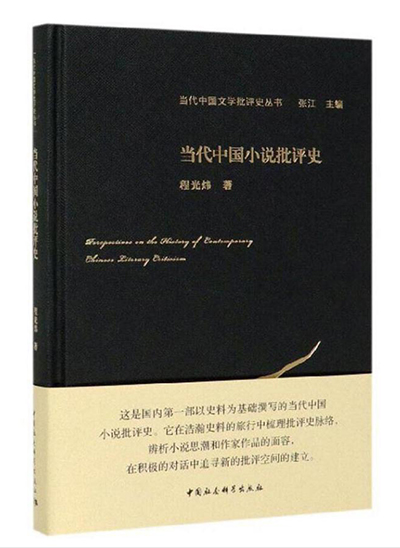Contemporary Chinese critique of fiction

Perspectives on the History of Contemporary Chinese Literary Criticism
Perspectives on the History of Contemporary Chinese Literary Criticism, written by Cheng Guangwei, a professor from the School of Liberal Arts at Renmin University of China, analyzes activities and practices from different “fiction critique circles” between 1949 and 2018, revealing their holistic thinking on contemporary Chinese fictional history.
Cheng lays special emphasis on critical analysis circles in Beijing and Shanghai, as well as Nanjing’s literary critique circle centered on the Zhongshan Literary Bimonthly. The Beijing circle opened up a new era of literary criticism as they discussed Wang Meng, Zhang Jie, Zhang Xianliang, Wang Zengqi, and Lu Yao, and refuted or defended pseudo-modernists and fiction describing the lives of zhiqing, or “educated youth.” In regard to the Shanghai critic circle, the author argues that a critical turning point in contemporary Chinese fictional ideology appeared around 1985, which witnessed a southward shift in contemporary fictional criticism.
The Beijing critic circle emerged with the efforts of Feng Mu and Chen Huangmei, and the circle mainly relied on the China Writers Association, the Institute of Literature at the Chinese Academy of Social Sciences, Peking University, and the Beijing Federation of Literary and Art Circles. The Shanghai critic circle was supported by literary veterans Ba Jin, Xia Yan, Jia Zhifang, Qian Gurong, and Xu Zhongyu, and was further pushed forward by Li Ziyun and Zhou Jieren, relying on the Shanghai Writers’ Association, Fudan University, and East China Normal University.
The book gives insights into methodological differences between Beijing and Shanghai circles. The Beijing circle advocated for realistic literary concepts featuring continuous differentiation and collisions in development. They showed a strong interest in individuals, egos, and literary forms. Their comments on scar literature and introspection literature show traces of 19th-century literature’s critical methods.
The Shanghai circle packed their bookshelves with works on psychoanalysis, structural linguistics, cultural anthropology, New Criticism, Western Marxism, psychology in literature, semiotics, linguistic philosophy, Russian formalism, structuralist poetics, narratology, and the Frankfurt School. Critics immersed in such an atmosphere had a strong Western style, leading “new-trend criticism” and shaping academic criticism—feminist critique, archetype critique, psychoanalytic critique, structuralism/deconstructivism critique, Marxist critique, and cultural critique. New-trend criticism unlocked literary criticism in the 1990s.
Wang Yulin is from the Center for Research of Chinese New Literature at Nanjing University.
Edited by YANG LANLAN

 PRINT
PRINT CLOSE
CLOSE